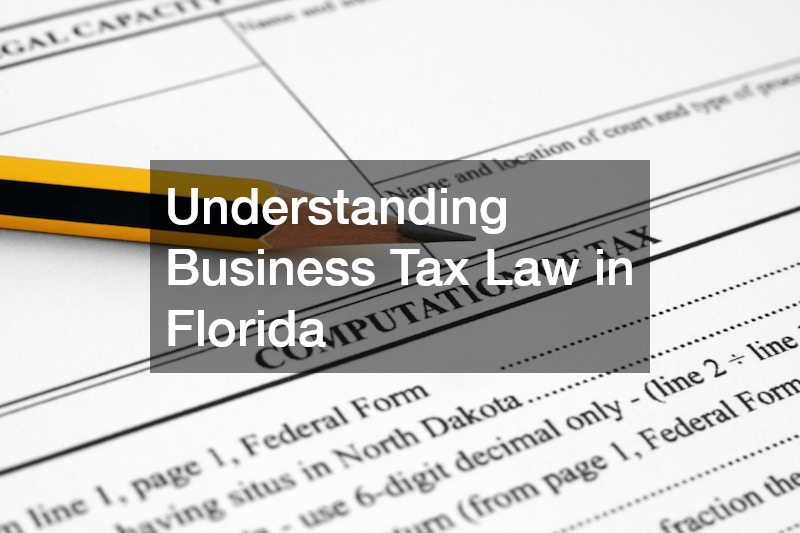
Florida stands out as an attractive location for businesses due to its favorable tax climate. Understanding the nuances of business tax law in the state is crucial for any company operating within its borders. Here, we’ll explore key aspects of Florida’s business tax environment, offering insights into how these regulations could impact your business operations.
1. No State Income Tax
One of the most appealing aspects of Florida’s tax environment is the absence of a state income tax. This policy extends to businesses as well, which means that income from business operations is not taxed at the state level.
This can result in significant savings compared to other states where business income faces state-level taxation.
2. Corporate Income Tax
While there is no personal income tax, Florida imposes a corporate income tax. The rate is currently set at 5.5% on all income derived from business activities conducted within the state. Businesses need to file a Florida Corporate Income Tax Return (Form F-1120) annually if their federal taxable income, adjusted for specific Florida modifications, exceeds certain thresholds.
3. Sales and Use Tax
Florida’s sales tax is applicable at a base rate of 6%, which applies to most goods and some services. Localities can add additional taxes, which can bring the total to as much as 7.5%. Businesses are responsible for collecting and remitting these taxes to the Florida Department of Revenue. Moreover, Florida imposes a use tax on goods purchased tax-free outside the state but used within the state, ensuring no tax advantage is gained by purchasing goods elsewhere.
4. Property Tax
Property tax is levied on real and tangible personal property in Florida. While this is a local tax rather than a state tax, it affects businesses as they must pay taxes on their real estate as well as tangible property like machinery, equipment, and furnishings. Rates vary by county and city, making it important to understand local tax obligations.
5. Other Business-Related Taxes
In addition to the above, Florida businesses may be subject to various other taxes, depending on their specific operations. These can include:
Unemployment Tax: Businesses pay this tax to fund the state’s unemployment insurance program.
Communication Services Tax: This tax applies to services like telecommunications and cable television.
Reemployment Tax: Formerly known as the Unemployment Tax, this is assessed to businesses based on employment practices and history.
Compliance and Planning
Navigating Florida’s business tax laws requires careful planning and compliance. Businesses should consider consulting with a tax professional familiar with Florida tax laws to ensure compliance and optimize tax obligations. Regularly reviewing tax laws is also critical, as regulations and rates may change.
Watch the video above to learn more about business tax law in Florida!.

